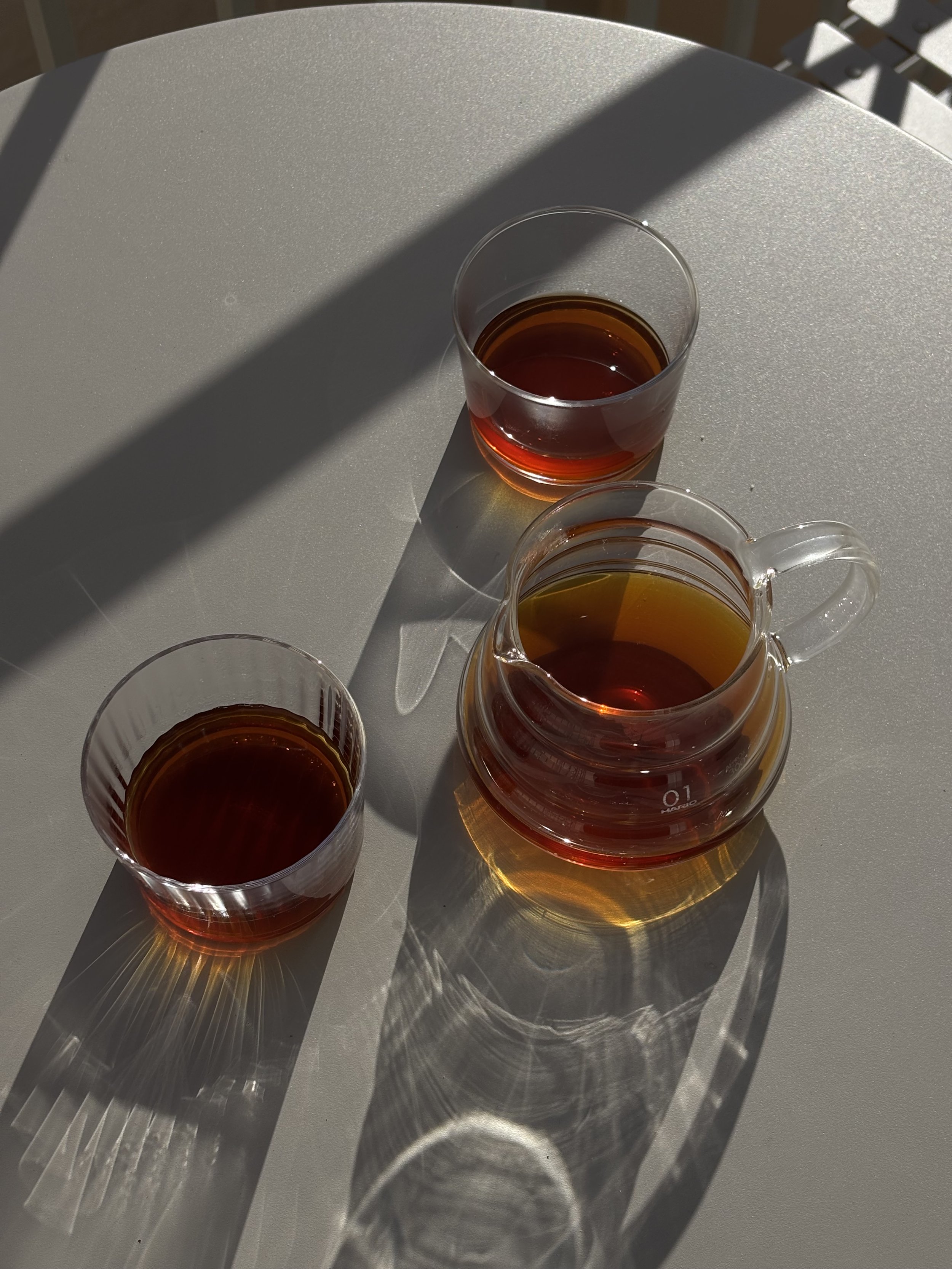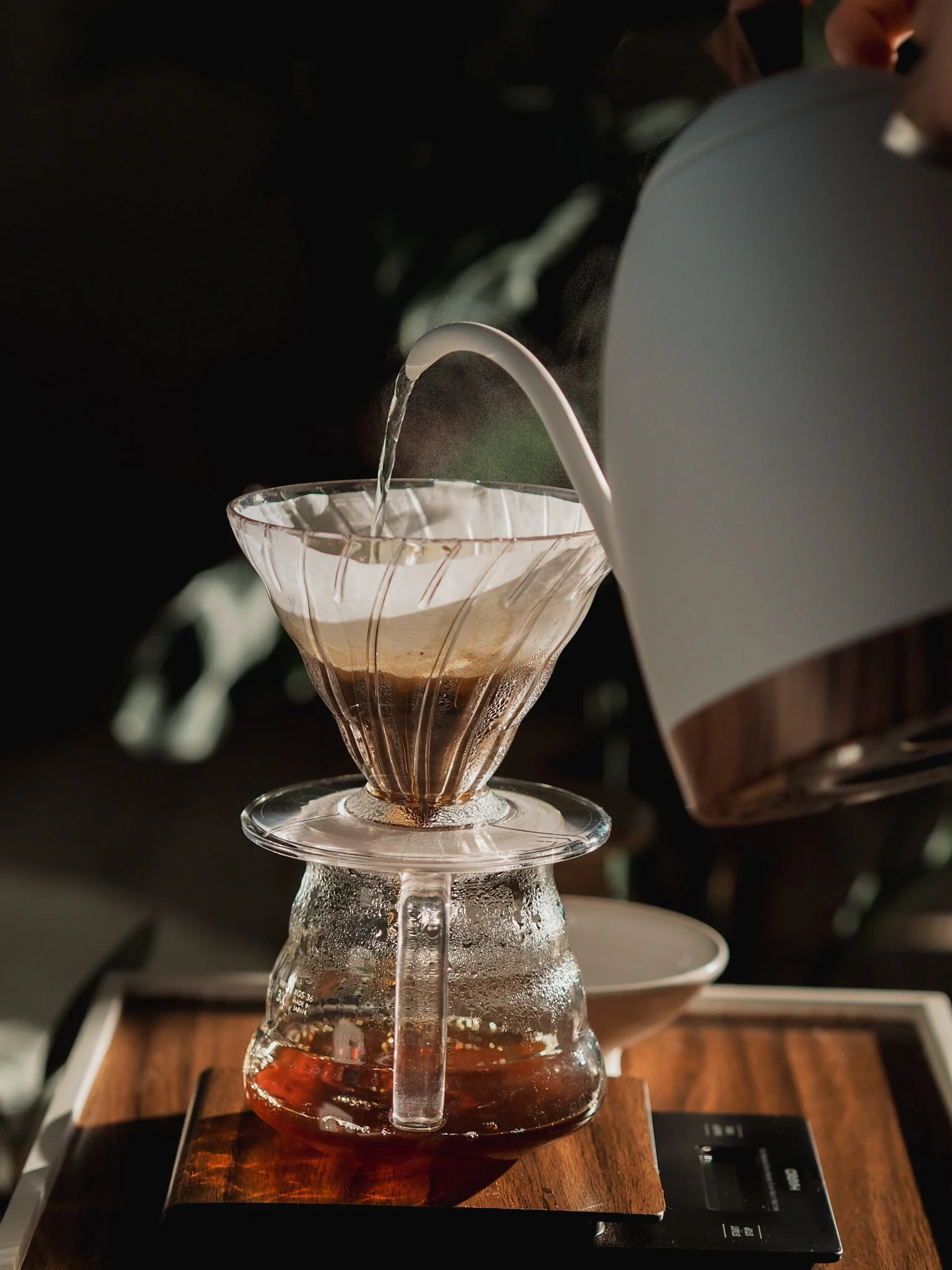
Brewing Recipes
-
V60
20g of coffee to 300mls of 90-95 degree Celsius water
0:00 Pour up to 60g
0:40 Pour up to 120g
1:10 Pour up to 180g
1:40 Pour up to 240g
2:10 Pour up to 300gBrewtime: 2:45-3:00 minutes
-
Espresso
18g coffee to 50g espresso in the cup
Brewtime: 20-24 seconds
-
Aeropress (Inverted)
15g of coffee to 220mls of 88-95 degrees Celsius water
0:00 Pour up to 220g
1:30 stir 5 times
Add cap, flip the aeropress and press the coffee into a server or cup
-
French Press
20g coffee to 300mls of 92-99 degree Celsius water
0:00 Pour all water
4:00 break the coffee crust and stir 5 times
8:00 put in plunger, pour into cup and treat your taste buds
BREWING MATTER
BREWING MATTER
To make good coffee, it's essential to understand the concept of extraction. If we were to dry out coffee grounds after brewing, we’d find that they weigh about 20% less than their original weight. This loss represents the portion of compounds that dissolved into our cup during brewing, a percentage known as extraction. Extraction plays a key role in flavor, as flavors don't extract from coffee in a simple, linear fashion—more extraction doesn’t always mean better taste.
When brewing starts, the coffee's natural acids are the first to dissolve, followed by sugars, and finally, the heavier, more bitter compounds come into play towards the end. This order means that managing the amount of extraction directly impacts the balance of flavors in your cup. If you extract too little, you'll end up with a sour cup, as too much acidity from the start dominates without enough sweetness to balance it. Conversely, extracting too much leads to an overly bitter taste, as the brew includes too many heavy compounds from the later stages, leaving the coffee tasting dry and bitter overall.

